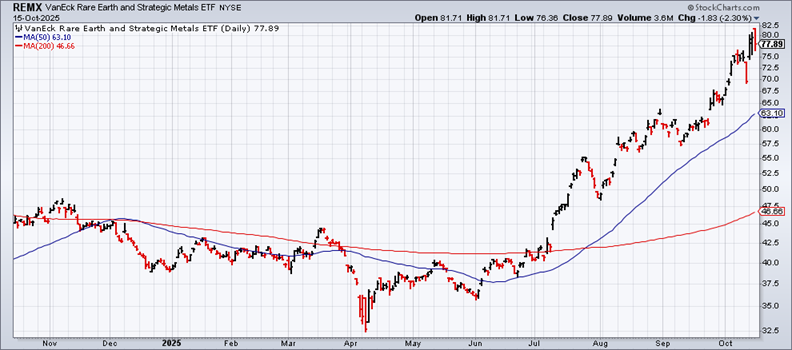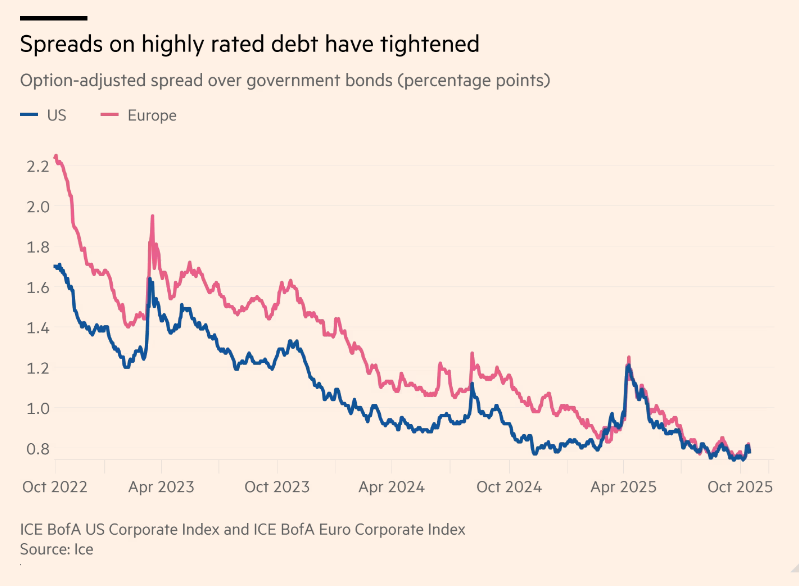
Macro Briefing: 16 October 2025

Tariffs are raising inflation as companies are caught between absorbing the costs or passing them onto customers, according to a Federal Reserve report… The Beige Book advised: “Prices rose further during the reporting period… Tariff-induced input cost increases were reported across many Di…
US to take control of more companies as counter to China’s dominance in rare earth supplies, which are critical for a range of industries. “When you are facing a nonmarket economy like China, then you have to exercise industrial policy,” Treasury Secretary Bessent said. “So we’re going to set price floors and the forward buying to make sure that this doesn’t happen again and we’re going to do it across a range of industries.” An ETF targeting companies in the rare earth industry fell on Wednesday after trading at a record high the previous day.
Tariffs are raising inflation as companies are caught between absorbing the costs or passing them onto customers, according to a Federal Reserve report. The Beige Book advised: “Prices rose further during the reporting period. Tariff-induced input cost increases were reported across many Districts, but the extent of those higher costs passing through to final prices varied.”
The New York Fed manufacturing index posts susprising gain in October. The regional central bank said its general business conditions index surged to a positive 10.7 after plunging to -8.7 in September, with a positive reading indicating growth. Economists had expected the index to climb to a negative 1.8.
Bank earnings posted solid quarterly gains, according to reports issued by Morgan Stanley and Bank of America. The upbeat results suggest the US economy continues to expand, said Thomas Martin, senior portfolio manager at GLOBALT. “People are spending, and the consumer seems to be fine. That’s been one of the messages from the bank earnings.”
India’s goods exports to the US, its largest foreign market, fell 20% in September and nearly 40% in the last four months in the wake of US tariffs. “US has become India’s most severely affected market since the tariff escalation began,” said Ajay Srivastava of Global Trade Research Initiative (GTRI), a Delhi-based think tank.
Low credit spreads raise warning flags for some bond investors. “Credit spreads are so tight that there’s almost no ability for them to tighten further,” said Fidelity International fund manager Mike Riddell, who cites the recent slide in the yield premium offered by corporate bonds vs. government debt.
Author: James Picerno


